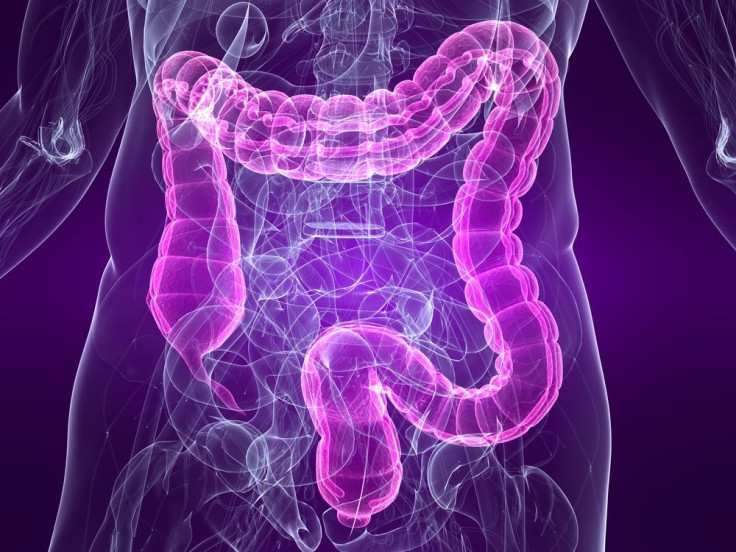A Blood Test For Certain Forms of Irritable Bowel Syndrome May Have Just Been Discovered

To hear sufferers describe it, irritable bowel syndrome (IBS) is one of the most torturous experiences a person can go through short of actually dying. "My body is my own personal Judas, constantly betraying me," wrote Vice writer Meg Mankin on her years-long struggle with IBS this April, "I'm that cramped and sweaty person in the meeting at work, constantly squirming in my chair that was strategically chosen for its close proximity to the door."
And for the some-30 million Americans with IBS, it's an experience only made all the more infuriating by its erratic, ever-changing nature. In addition to bloating, some IBS sufferers are plagued by bouts of chronic diarrhea, some with an eternity's length of constipation, while still others bowl over in pain from alternating sessions of both, making for the most demented tag-team since Diet Cherry Vanilla Coke.
The truly maddening part of IBS, also known as spastic colon, however, is its cause. Which is to say that there isn't one, at least not one that doctors can readily agree upon. In the medical lexicon, IBS is considered a diagnosis of exclusion, conferred upon patients who test negative for other conditions like irritable bowel disease (IBD), celiac disease, and food allergies. While some research shows that the guts and colons of IBS sufferers have similar physical characteristics, for the most part, IBS has been defined by its lack of identifiable criteria.
In that void, scientists have proposed everything from infection to mental illness as an underlying cause of IBS, with varying levels of evidence behind these theories. That ambiguity has likewise made IBS treatment programs akin to blindly throwing darts, with mediation, restrictive diets, anti/probiotics, and cognitive-behavioral therapy all considered viable treatments that can somewhat manage IBS. But now, the authors of a new PLOS ONE study claim that they've solved part of the puzzle, having created a diagnostic test that can reliably identify the presence of certain forms of IBS in people. If they're right, their test may bring relief and validation to the millions of sufferers who have lived in doubt and shame of their ailment.
In earlier studies, the authors noticed that cytolethal distending toxin B (CdtB), a chemical released by bacteria known to cause food poisoning, created IBS-like symptoms and its own specific antibodies in mice; it also spurned the production of antibodies against a harmless but molecularly-similar protein, vinculin. Creating a blood test that could accurately detect these antibodies, they then decided to see if the same was true in people. In a rather ingenious experimental design, they worked backwards, recruiting and testing over 2,000 patients already believed to be suffering from diarrhea-predominant IBS (D-IBS) alongside people diagnosed with IBD, celiac disease, or who had no prior gastrointestinal issues. "We observe that plasma antibodies to vinculin and CdtB were elevated in D-IBS [patients] compared to healthy controls, subjects with celiac disease, and subjects with IBD such that the biomarkers appeared to be able to distinguish D-IBS from all non-IBS," the authors concluded (antibody levels were higher among celiac patients as well but not nearly to the degree found in IBS patients; celiac is also already reliably diagnosable).
Better still, because these biomarkers were the result of bacterial infection, the authors believe that their results add further support to the theory that at least some cases of IBS are directly linked to an organic cause, explaining that at least ten percent, but possibly more, of IBS cases seem to occur after an acute bout of food poisoning. "Since not all D-IBS subjects test positive for these biomarkers, it is also possible that these antibodies identify a subgroup of IBS for which a mechanism and therapies could be developed," they wrote (44 percent of the IBS patients in their sample tested positive).
As the authors note, identifying IBS is oftentimes an exhaustive gauntlet of examinations and medications for the patient as their doctors try to rule out as many other illnesses as they can. "Having a test like this shortens the time of suffering, it shortens the time of investigation and accelerates getting the patient directly to treatment," lead author Dr. Mark Pimentel told CBS News.
There’s obviously still a lot of unanswered questions and needed replications of the study’s results but should they pan out, Pimentel's test may represent the greatest leap forward in IBS treatment to date. Here’s hoping it does.
Source: Pimentel M, Morales W, Rezaie A, et al. Development and Validation of a Biomarker for Diarrhea-Predominant Irritable Bowel Syndrome in Human Subjects. PLOS ONE. 2015.



























